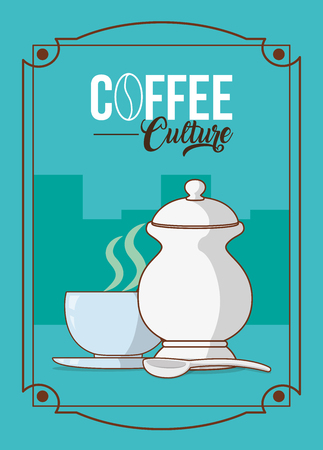1. Understanding Intermittent Fasting
Intermittent fasting (IF) has become a go-to weight loss strategy for many Americans looking for a more sustainable and flexible way to shed pounds. Unlike traditional diets that focus on what you eat, intermittent fasting focuses on when you eat. This approach can help regulate your metabolism, reduce calorie intake, and support fat burning — all without the need for strict food restrictions.
Popular Intermittent Fasting Methods
There are several IF methods out there, but two of the most popular ones in the U.S. are the 16:8 method and the 5:2 method. Here’s a quick breakdown:
| Method | How It Works | Why People Like It |
|---|---|---|
| 16:8 Method | You fast for 16 hours and eat during an 8-hour window each day (e.g., eat from 12pm to 8pm). | Easy to follow; fits well with daily routine; no calorie counting required. |
| 5:2 Method | You eat normally for 5 days a week and limit your calorie intake to around 500–600 calories on the other 2 days. | More flexibility during the week; only restricts calories twice weekly. |
Why Intermittent Fasting Is Popular in the U.S.
Many Americans are drawn to intermittent fasting because it doesnt require giving up favorite foods or following complicated diet plans. It offers a level of freedom that fits into busy lifestyles, making it easier to stick with long term. Plus, its supported by growing scientific research showing its benefits for weight loss, insulin sensitivity, and even mental clarity.
The Role of Caffeine
This brings us to caffeine — a common part of many Americans’ daily routines. Whether its your morning coffee or an afternoon green tea, caffeine can play a supportive role in intermittent fasting by helping suppress appetite, boosting energy levels during fasted periods, and enhancing fat oxidation. In upcoming sections, we’ll dive deeper into how caffeine works hand-in-hand with intermittent fasting for effective weight loss.
2. What Caffeine Does to Your Body During a Fast
When youre intermittent fasting, your body is already in a unique metabolic state—burning fat for fuel and keeping insulin levels low. Adding caffeine into the mix can amplify some of these effects, especially when its consumed on an empty stomach.
Boosts Metabolism
Caffeine naturally stimulates your central nervous system. This increases thermogenesis, which is your bodys process of producing heat and burning calories. Even without eating, caffeine can give your metabolism a temporary lift, helping you burn more fat during your fasting window.
Metabolic Effects of Caffeine (on an Empty Stomach)
| Effect | Description |
|---|---|
| Increased Fat Oxidation | Caffeine helps your body tap into fat stores for energy, which is ideal during a fasted state. |
| Elevated Thermogenesis | Your body burns more calories through heat production, even at rest. |
| Enhanced Physical Performance | You may feel more energized during workouts while fasting with caffeine in your system. |
Improves Energy Levels Without Breaking Your Fast
If youre skipping breakfast, that morning coffee might feel like a lifesaver. Caffeine improves alertness and focus by blocking adenosine—a chemical that makes you feel sleepy. That means you can stay productive and mentally sharp even when youre not eating.
Suppresses Appetite Naturally
One of the biggest challenges with intermittent fasting is hunger. Fortunately, caffeine has been shown to reduce appetite temporarily. When taken on an empty stomach, black coffee or other unsweetened caffeinated drinks can help curb cravings and make it easier to stick to your fasting window.
Caffeine Sources That Won’t Break Your Fast:
- Black coffee (no sugar or cream)
- Unsweetened green or black tea
- Zero-calorie energy drinks (check ingredients carefully)
- Espresso shots with no added milk or sweetener
Caffeine isnt a magic bullet for weight loss, but it can definitely support your intermittent fasting journey by boosting metabolism, increasing energy, and helping you manage hunger—all without consuming any calories.
![]()
3. Benefits of Caffeine in Supporting Fasting Goals
When youre doing intermittent fasting, it can be tough to stay focused and energized—especially during those long hours without food. That’s where caffeine comes in. Found in coffee, tea, and some supplements, caffeine can be a helpful tool for making your fasting journey smoother and more effective.
How Caffeine Supports Fat Burning
Caffeine has been shown to boost your metabolism and encourage your body to burn fat for energy—especially when youre in a fasted state. It does this by stimulating the central nervous system, increasing adrenaline levels, and promoting lipolysis (the breakdown of fat cells).
Fat-Burning Benefits of Caffeine During Fasting
| Benefit | How It Helps |
|---|---|
| Increased Metabolic Rate | Caffeine can raise your resting metabolic rate, helping you burn more calories even while at rest. |
| Enhanced Fat Oxidation | Your body is more likely to use fat as fuel when caffeine is consumed during fasting periods. |
| Appetite Suppression | Caffeine may help reduce hunger signals, making it easier to stick to your fasting window. |
Boosting Focus and Stamina While Fasting
One of the hardest parts about intermittent fasting is staying productive without feeling sluggish or distracted. Luckily, caffeine can give your brain a lift. It increases dopamine production and blocks adenosine receptors, which helps improve alertness and mood.
Mental and Physical Performance Benefits
- Improved Focus: Caffeine helps you concentrate better during work or daily tasks.
- Sustained Energy: It gives you a natural energy boost without breaking your fast.
- Better Workout Performance: Drinking black coffee before a fasted workout can enhance endurance and fat burn.
The Best Ways to Use Caffeine During Fasting
If youre looking to make the most out of caffeine while fasting, timing and type matter. Here are some practical tips:
| Tip | Why It Works |
|---|---|
| Drink Black Coffee or Unsweetened Tea | No calories or sugar means your fast stays intact while still giving you the benefits of caffeine. |
| Avoid High-Caffeine Energy Drinks | Many contain hidden sugars or calories that can break your fast. |
| Time Your Caffeine Intake Wisely | Try consuming caffeine in the morning or early afternoon to avoid sleep disruption later on. |
Caffeine isnt just a morning pick-me-up—its a powerful ally in helping you stay on track with your intermittent fasting goals. By enhancing fat burning, improving mental clarity, and boosting energy levels, it makes sticking to your fasting windows feel a lot more doable.
4. Best Sources of Caffeine While Fasting
When practicing intermittent fasting, it’s important to choose caffeine sources that won’t break your fast. The goal is to consume beverages that are low to zero calories and free from added sugars or creamers. Thankfully, there are several popular options in the U.S. that can give you the energy boost you need while supporting your weight loss goals.
Black Coffee
Black coffee is one of the most popular and effective caffeine sources during fasting. It contains almost zero calories and no sugar or fat—making it a perfect choice for staying in a fasted state. Coffee also has appetite-suppressing properties, which can help reduce hunger cravings during fasting windows.
Benefits of Black Coffee:
- Zero calories
- Boosts metabolism
- Enhances focus and alertness
- Might help curb appetite
Green Tea
Green tea is another excellent option. It contains less caffeine than coffee but provides a more stable energy boost due to the presence of L-theanine, an amino acid that promotes calm focus. Green tea also contains antioxidants like EGCG, which may support fat burning and overall health.
Benefits of Green Tea:
- Low in caffeine (but enough for a mild energy boost)
- Contains antioxidants that support fat metabolism
- No calories when consumed plain
Zero-Calorie Energy Drinks
If youre looking for something with a bit more flavor or a stronger kick, zero-calorie energy drinks can be a good fit—as long as they truly contain no sugar or calories. Brands like Monster Zero Ultra or Celsius are popular in the U.S. and often used by people following intermittent fasting routines.
Things to Watch For:
- Check the label for hidden sugars or carbs
- Avoid drinks with artificial sweeteners if youre sensitive to them
- Don’t overconsume—too much caffeine can cause jitters or disrupt sleep
Caffeine Source Comparison Table
| Caffeine Source | Calories (per serving) | Caffeine Content (approx.) | Fasting-Friendly? |
|---|---|---|---|
| Black Coffee (8 oz) | 0 | 95 mg | Yes |
| Green Tea (8 oz) | <5 | 25-35 mg | Yes |
| Zero-Cal Energy Drink (12-16 oz) | 0-10* | 100-200 mg | Yes* |
*Always check nutrition labels for hidden ingredients that could break your fast.
Selecting the right caffeine source during your fast not only helps keep you energized but also supports your weight loss journey without interfering with your fasting window.
5. Tips for Managing Caffeine Intake Safely
If youre using caffeine to boost your intermittent fasting results, its important to do it the smart way. While caffeine can help with energy, focus, and even fat burning, too much of it—or poor timing—can lead to unwanted side effects like jitters, anxiety, or trouble sleeping. This is especially true if youre new to fasting or sensitive to stimulants. Here are some simple tips to help you manage your caffeine intake safely during your intermittent fasting journey.
Understand Your Personal Tolerance
Everyone reacts differently to caffeine. Some people can drink multiple cups of coffee with no issue, while others feel shaky after just one. Start slow and pay attention to how your body responds, especially when fasting intensifies its effects.
Time It Right
Caffeine is best consumed during your fasting window to support alertness and appetite control. But avoid having it too late in the day—it can disrupt your sleep and throw off your bodys natural rhythm.
Recommended Timing Based on Common Fasting Schedules:
| Fasting Schedule | Best Time for Caffeine |
|---|---|
| 16:8 (fast from 8 PM – 12 PM) | Between 7 AM – 11 AM |
| 18:6 (fast from 6 PM – 12 PM) | Between 7 AM – 10 AM |
| 20:4 (fast from 4 PM – 12 PM) | Between 7 AM – 9 AM |
Choose Clean Sources of Caffeine
Avoid sugary energy drinks or high-calorie coffee beverages that can break your fast or spike insulin levels. Stick with black coffee, unsweetened tea, or plain cold brew during your fasting window.
Caffeine Options That Support Fasting:
- Black coffee (no sugar or cream)
- Green tea or herbal teas (unsweetened)
- Cold brew coffee (unsweetened)
Don’t Overdo It
The FDA recommends no more than 400 mg of caffeine per day—that’s about 4 cups of brewed coffee. Going over that can increase anxiety, heart rate, and insomnia—especially when fasting amplifies these effects.
| Beverage | Approximate Caffeine Content |
|---|---|
| Brewed Coffee (8 oz) | 95 mg |
| Espresso Shot (1 oz) | 63 mg |
| Green Tea (8 oz) | 30–50 mg |
Watch for Warning Signs
If you start feeling jittery, anxious, dizzy, or have trouble sleeping—those are signs you may need to cut back on caffeine. Try reducing your intake gradually and see if symptoms improve.


